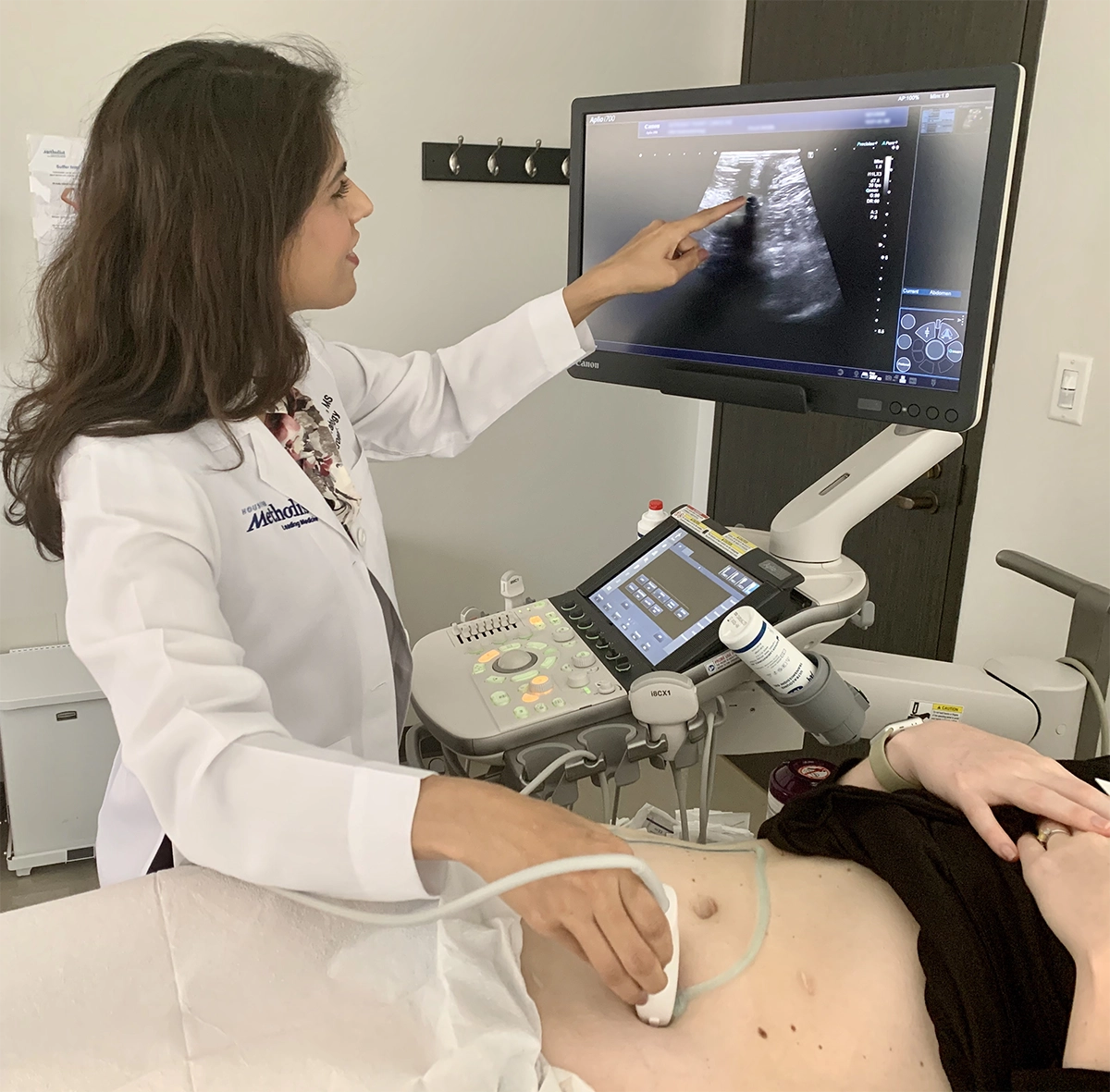
Intestinal ultrasound for inflammatory bowel disease
Intestinal ultrasound for inflammatory bowel disease
Medical management of inflammatory bowel disease (IBD) has traditionally been aided by colonoscopy, an invasive and time-intensive procedure that requires patients to undergo bowel prep and sedation. Intestinal ultrasound (IUS) is a non-invasive alternative that allows physicians to assess disease activity and make timely clinical decisions while offering patients the convenience of point-of-care testing at office visits.

Although IUS is used regularly in Canada and several European countries, minimal insurance reimbursement has slowed its adoption in the United States. Bincy P. Abraham, MD, Fondren Distinguished Professor in Inflammatory Bowel Disease and Program Director of the Gastroenterology Fellowship Program at the Underwood Center, has pioneered the use of IUS for patients with IBD in the United States, both implementing this emerging technique in practice and training other US-based physicians in it.
“From a clinical perspective, I think it’s phenomenal,” Dr. Abraham explains, “because it’s point-of-care, so we get answers right away. For the patient, it’s a huge benefit. They do not have to be sedated, they do not need to have any bowel preparation, and they can see the area of inflammation as we examine them.”
Dr. Abraham’s recent study retrospectively evaluating clinical decisions based on IUS in patients with IBD at the Underwood Center demonstrates IUS’s utility as a reliable method for monitoring disease activity.
If adopted more widely in the United States, IUS could provide a highly responsive tool for clinical decision making that improves patient care.





